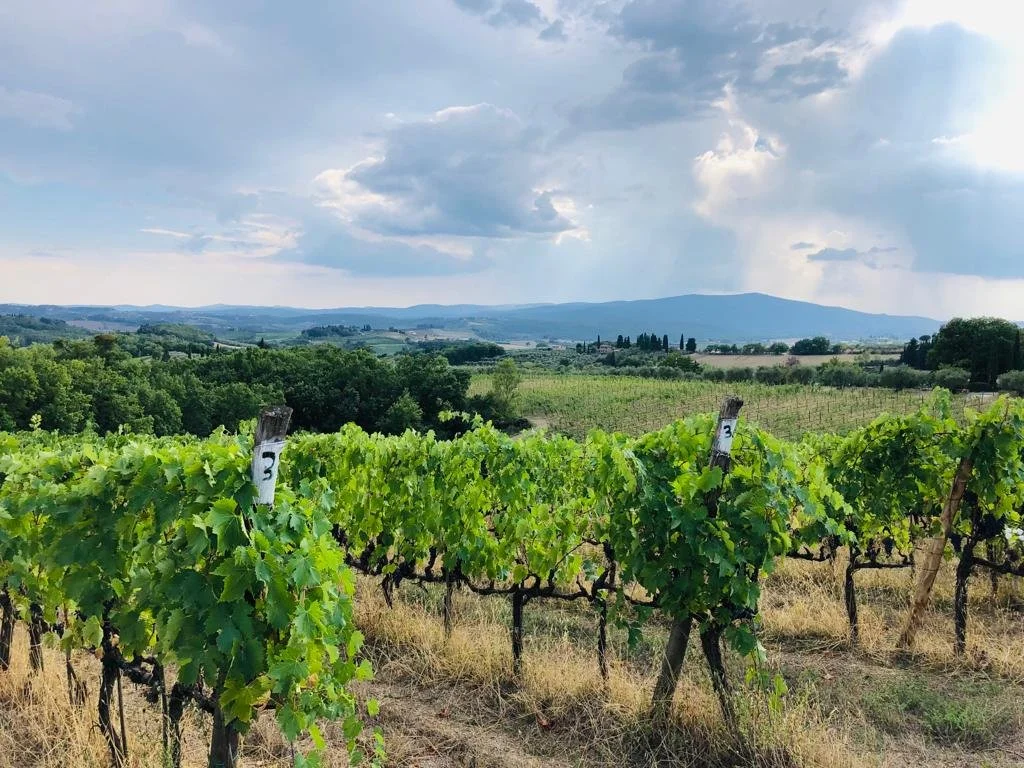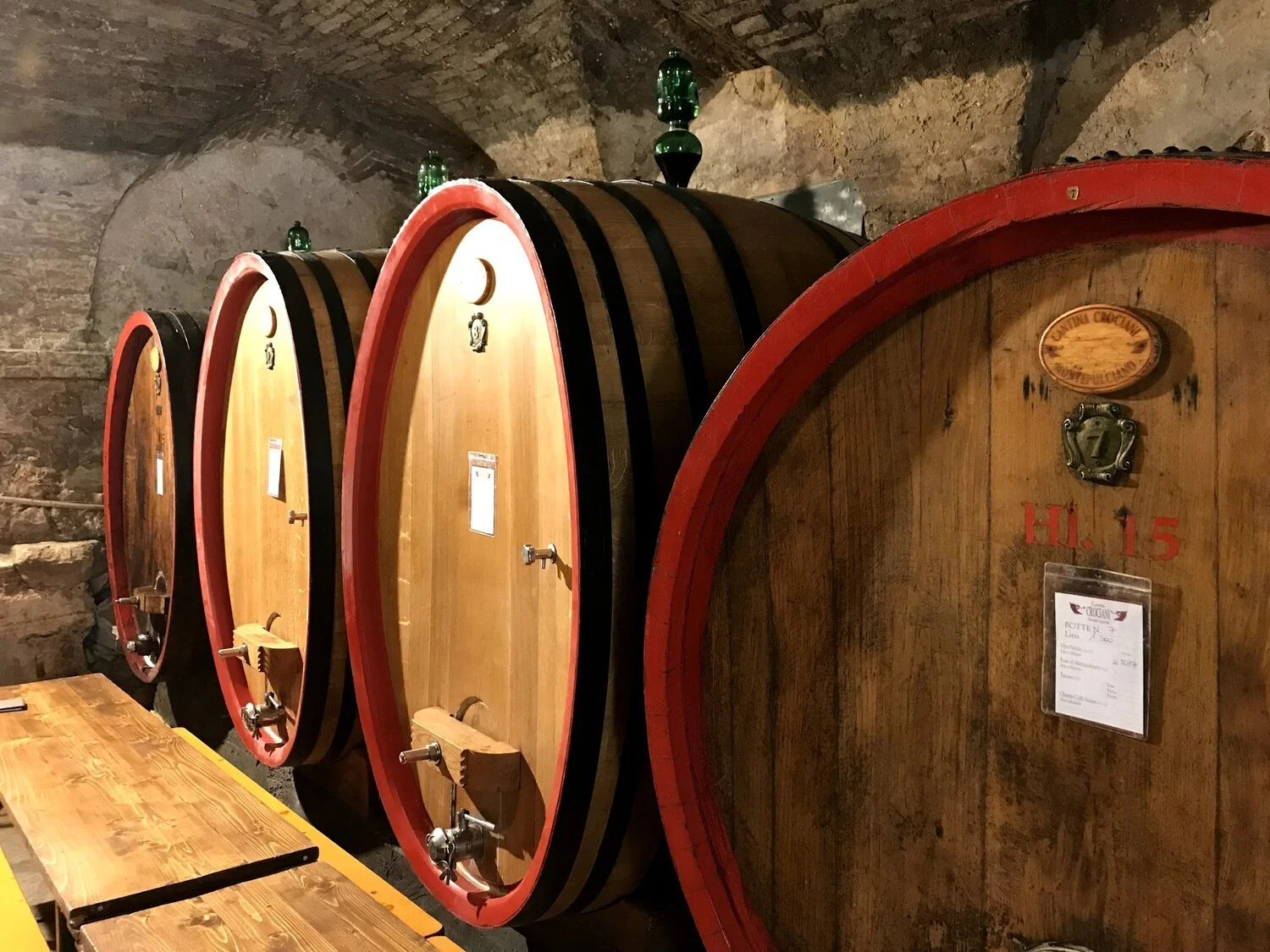What gives wine all its different flavors?
The answer is it depends. In its purest form, it's just the grapes that give wine all its exciting, unique flavors. The grapes themselves offer near-infinite different possible flavors and flavor combinations to a wine based on what type of grapes are being used, the blend of grapes (if blended at all), the soil in which the grapes are grown, the climate in which the grapevine lives, etc., etc. Grapes are beautiful in how expressive they can be of micro-terroirs (tiny changes in the ecosystem in which the vines grow), which is what makes wine such a unique offering to begin with: you can taste almost anything under the sun in wine. From charcoal to honeysuckle, from goatskin to melon, from tobacco to seawater — you can taste almost anything in wine, and it’s f***ing delightful and exhilarating! Wine, in its purest form is liquid natural history in a bottle that we get to taste and enjoy.
Vineyards basking under the summer Tuscan sun in Castellina in Chianti.
Now, when commercialism and capitalism enter the picture, wine starts to change. Instead of allowing the grapes to express themselves naturally as they would, instead, wine is manufactured with a consumer-product mentality. Wine is manufactured to taste a certain way. To please a certain group of people. And in order to manufacture predictable wines requires copious amounts of intervention and chemical additives. In this unpure form, wine gets its flavors from the same place sodas or candies or popsicles do — artificial flavorings and unhealthy additives. If you think about it, alcohol products are pretty much the only consumable products in the U.S. that do not list out the ingredients on the packaging. Even when required to list out ingredients, there are food products on grocery-store shelves with known toxins and carcinogens. Can you imagine what manufacturers will dump into a wine if they never have to tell anyone what they did?
That’s precisely why the quality of the wine you buy matters. It matters not only for taste and pleasure but also for your health and well-being. Not all wines are created equal from a health standpoint, but that’s a story for another time.
Anyways, back to the good stuff, i.e. more responsibly and naturally made wines. There are perhaps two other major natural flavor-drivers in wine, and both relate to aging. One is how long a wine is aged for and the other is the vessel a wine is aged in. Time itself will have a significant impact on a wine and its flavors, coaxing out more complex and strange flavors the older a wine gets — regardless of what the wine is being aged in. Over time, wines will start to lose fruity and floral aromas and pick up more savory and earthy ones. Not everyone likes this change, and if you’re one of those folks, then now you know perhaps not to drink aged wines!
Botti in Chianti Classico — large barrels that are used many, many times such that they add very little flavor themselves actively but allow for passive micro-oxygenation.
The vessel a wine is aged in is the final major flavor-driver. Most of us are familiar that wine can be aged in oak barrels, but it can also be aged/rested in stainless steel, concrete, clay, terra cotta, and other mediums. The vessel can influence a wine’s flavor either passively or actively, and we might explore this concept in greater depth later on, but, in short, the vessel might either allow for micro-oxygenation, i.e. tiny amounts of oxygen contact, which will cause tiny amounts of oxidation in a wine or the vessel might itself impart flavor compounds into the wine. Oak will be the most active of the various medium, but even that will depend significantly on the size of the barrel, the newness of it, the toasting of it, and various other factors.
So, there you have it. In its purest form, it’s just grapes with a little help from time and the vessel it lives in that gives wine its magical and unpredictable flavors. May we continue to have those wines to drink for the many generations to come 🥂!


